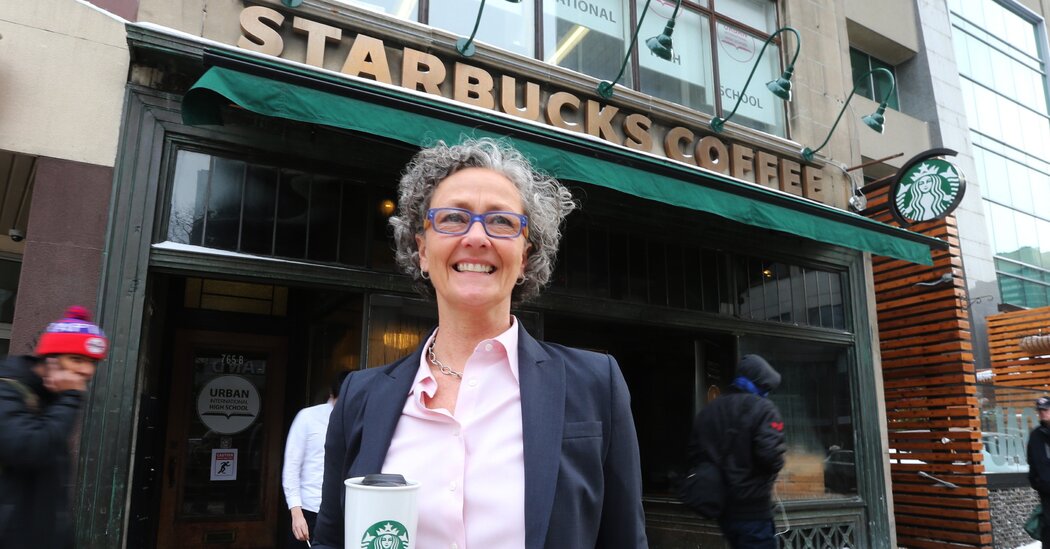
Starbucks said Friday that an executive who played a key role in the company’s response to a growing union campaign would leave by the end of the month.
In a letter to employees, whom Starbucks calls “partners,” the company’s chief operating officer said that Rossann Williams, the president of retail for North America, would be leaving after 17 years at the company. The letter said the decision was “preceded by discussion about a next opportunity for Rossann within the company, which she declined.”
John Culver, the chief operating officer, added in the letter that Ms. Williams “has not only been a fierce advocate for our partners, but she has been a champion of our mission, our culture and operational excellence.”
Since December, when a store in Buffalo became the only one of Starbucks roughly 9,000 corporate-owned stores with a union, the campaign has spread rapidly across the country.
The union has won over 80 percent of the more than 175 elections in which the National Labor Relations Board has declared a winner, and workers have formally sought elections at more than 275 stores in all.
After workers at three Buffalo-area stores filed for union elections in August, Ms. Williams went to the city and spent much of the fall there leading the company’s response to the campaign. She spent many hours in stores, asking employees about concerns they had at their workplaces and even pitching in on tasks like throwing out garbage.
But some workers said the presence of such a high-ranking official in their stores was intimidating and even “surreal.”
Labor experts also raised concerns that Ms. Williams and other Starbucks officials deployed to the stores could be violating labor laws by intimidating workers and effectively offering to improve working conditions if employees voted against unionizing.
The National Labor Relations Board later issued a complaint against the company along these lines, after investigating and finding merit to the accusations.
The company denied that it had violated the law and has long said that it is seeking to address operational issues like understaffing and inadequate training, efforts it said had preceded the organizing campaign.
In response to a question about whether she or the company might be undermining the conditions for a fair union election, Ms. Williams said in an interview in October that she had no choice but to intervene.
“If I went to a market and saw the condition some of these stores are in, and I didn’t do anything about it, it would be so against my job,” she said at the time. “There’s no way I could come here and say I’m not going to do anything.”
Mr. Culver’s letter said that Ms. Williams would be replaced by Sara Trilling, who most recently oversaw the company’s operations in the Asia-Pacific region.




